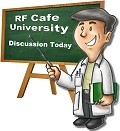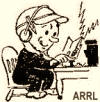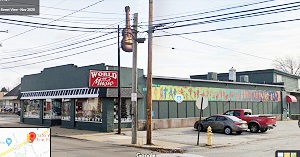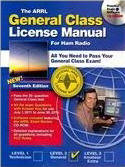"I Didn't Know Ham Radio People Were Still Around" |
|
1 | 2 | 3 | 4 | 5 | 6 | 7 | 8 | 9 | 10 | 11 | 12 | 13 | 14 | 15 | 16 | 17 | 18 | 19 | 20 | 21 | 22 | 23 | 24 | 25 | 26 | 27 | 28 | 29 | 30 | 31 | 32 | 33 | 34 | 35 | 36 | 37
Ham radio operators have been on the front lines of national and civil defense since World War II and even a bit before (see links below). So important have been the contributions of Ham operators that the FCC (Federal Communications Commission) has consistently protected the very valuable spectrum reserved for amateur radio. In fact, so highly regarded are licensed amateurs that while a bevy of requirements are set forth in Part 97 of FCC regulations regarding legal operation on the amateur bands, many areas defer to the operators' judgment in applying the standard of "best practice." Individual amateur radio station installations, aka 'Ham shacks,' are subject to inspection at any time, but do not require that a government official sign off on every transmitter, receiver, and antenna setup as is the norm for commercial stations. World of Music, Erie, PA Isaac Newton's first law states that an object in motion tends to remain in motion, and an object at rest tends to remain at rest. The more massive the object, the harder it is to get it started or stopped. Because amateur radio operators are not hindered by the hideously massive monstrosity that is a government bureaucracy, they are almost always first responders on the scene of civil disasters. In the cases of hurricanes Katrina and Sandy, FEMA (Federal Emergency Management Agency) was famously slow at providing emergency communications needed to coordinate search and rescue; food, water, and clothing; weather reporting; relaying status messages to family members; and a host of other services not even related to communications. The same was true when Muslim extremists attacked America's homeland in 2001. When tornadoes decimate towns across the Midwest and the South, Amateurs in the communities prepare for the onslaught. They have trained regularly for such situations. After the trauma they are ready to go. In really big disasters volunteers from all over the country pack up their equipment and head to the scene. Do you recall in the many thousands of on-the-scene reporting episodes a single segment focusing on the effort of Ham operators? That's not to say there were none, but they were so scarce that most people never saw one. Serious efforts are put forth by Amateur radio operators in training for their roles in emergency response processes, including training and the assembly of equipment able to be mobilized on short notice. ARES (Amateur Radio Emergency Communication) and RACES (Radio Amateur Civil Emergency Service) are designed to provide structured programs to help assure mission success. Per the ARRL website, "ARES is activated before, during and after an emergency. Generally, ARES handles all emergency messages, including those between government emergency management officials. RACES, on the other hand, almost never starts before an emergency and is active only during the emergency and during the immediate aftermath if government emergency management offices need communications support. RACES is normally shut down shortly after the emergency has cleared." Unlike FEMA and other federal, state and local emergency response units, Amateur radio hardware and expertise is provided at no charge. Costs are not even tax deductible for participants, although there are some operations classified as 501(c)(3) charitable organizations where donations can be deducted. I am not recommending it, but if you really want to see the value of the Amateur Radio community's contributions to society, have them all sit out the next major disaster and see how the government takes care of things. If it did happen, you can bet lawyers would be retained by victims to sue private citizens (Hams) for having the capability to assist but electing not to provide the service. Then you would finally get some major network news coverage and people would not be in the dark about Hams (although they might be in the dark for other reasons).
* There is just the tiniest possibility, too, that being ignored is due in part to the typical Ham operator's demographic profile. I'm just saying...
Posted October 26, 2021 |
 "
"

